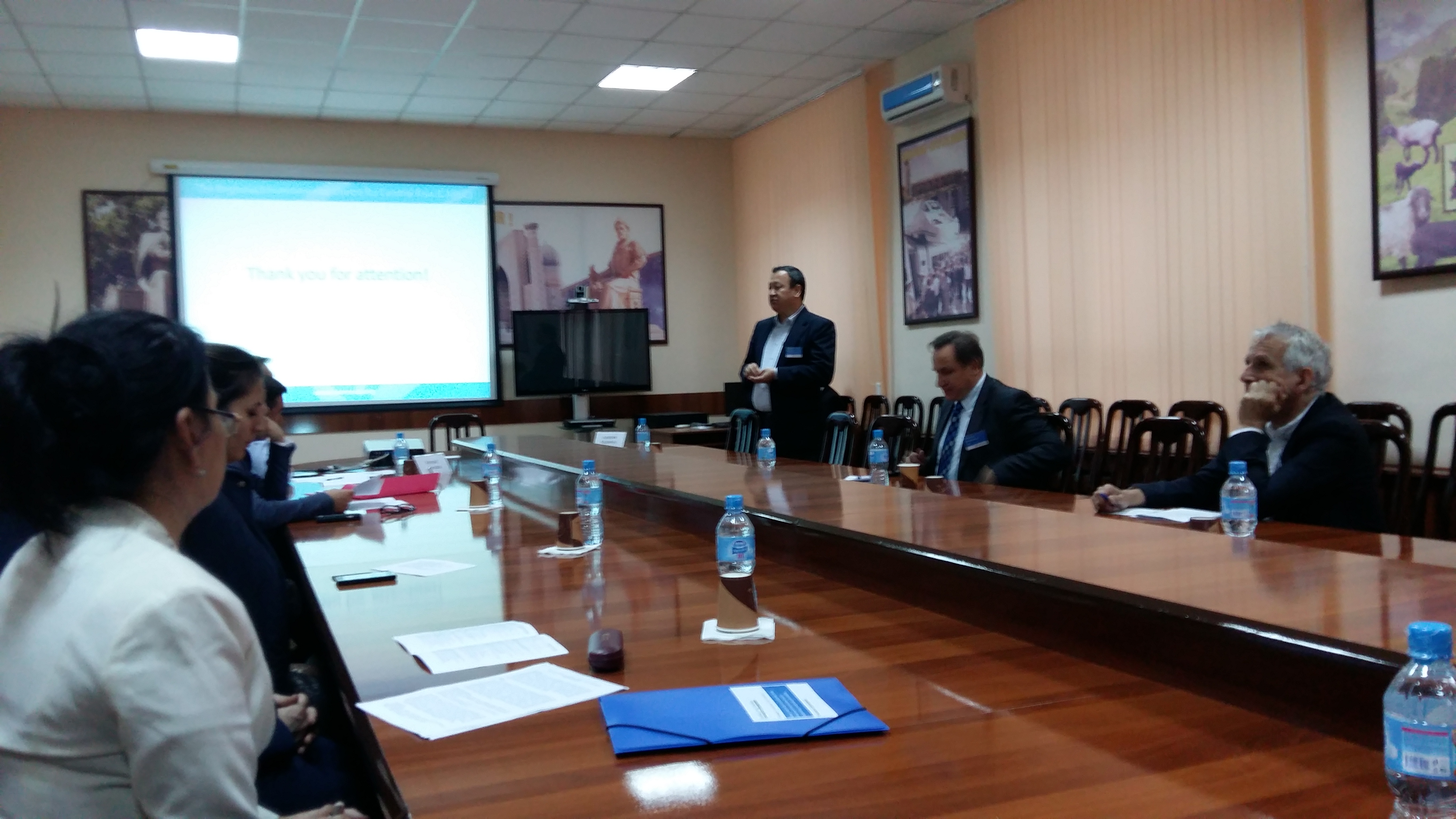Samarakand Conference: Researches and practitioners discuss agricultural trade in Central Asia and South Caucasus
2-4 November 2016, Samarkand (Uzbekistan) hosts the conference on «Regional and International Cooperation in Central Asia and South Caucasus: Recent Developments in Agricultural Trade». This event is a result of cooperation between the Samarkand Agricultural Institute in Uzbekistan, the Food and Agriculture Organization of the United Nations (FAO), the Regional Environmental Centre for Central Asia (CAREC) and Coordinating Committee for Science and Technology Development under the Cabinet of Ministers of the Republic of Uzbekistan, which is supported by the German Academic Exchange Service (DAAD).
.jpg) Agricultural trade in the Caucasus and Central Asia (CCA) depends on efficiency of regional markets. Trade relations within CIS countries are defined by historical ties, common borders and shared language, as well as agricultural specialization inherited from the Soviet Union. However, substantial changes have occurred in trade policies of the CCA during the last years. Expansion of the Eurasian Economic Union and accession of several countries to the World Trade Organization play an important role in determining the agricultural trade in the region.
Agricultural trade in the Caucasus and Central Asia (CCA) depends on efficiency of regional markets. Trade relations within CIS countries are defined by historical ties, common borders and shared language, as well as agricultural specialization inherited from the Soviet Union. However, substantial changes have occurred in trade policies of the CCA during the last years. Expansion of the Eurasian Economic Union and accession of several countries to the World Trade Organization play an important role in determining the agricultural trade in the region.
The trade-offs emerging from these developments and the implications for the CCA economies are not yet fully understood. The aim of the three-day conference is to mobilize the research capacities in the CCA through the exchange of knowledge and research findings among regional and international experts.
During the conference, participants discuss the results research on following topics: impact of global and regional crises on commodity prices, options for facilitating intra-regional and international trade of agricultural commodities, food security and availability under conditions of supply chain disruptions and many others.
.jpg) Dr. Iskandar Abdullaev, Executive Director of CAREC, as a keynote speaker delivered a speech on water cooperation in Central Asia, lessons learnt and opportunities. In his statement during the third plenary session, he stressed the importance of improved water management for sustainable development of the region and highlighted the challenges. In particular, he emphasized that the water cooperation requires new solutions, approaches, instruments, evidence based -research and scientific approaches. Moreover, Dr. Abdullaev demonstrated CAREC approach for water cooperation in Central Asia, mentioning a joint work with the countries, an exchange of best practices and involvement of different stakeholders beyond water.
Dr. Iskandar Abdullaev, Executive Director of CAREC, as a keynote speaker delivered a speech on water cooperation in Central Asia, lessons learnt and opportunities. In his statement during the third plenary session, he stressed the importance of improved water management for sustainable development of the region and highlighted the challenges. In particular, he emphasized that the water cooperation requires new solutions, approaches, instruments, evidence based -research and scientific approaches. Moreover, Dr. Abdullaev demonstrated CAREC approach for water cooperation in Central Asia, mentioning a joint work with the countries, an exchange of best practices and involvement of different stakeholders beyond water.
 Dr. Jusipbek Kazbekov, CAREC Water Programs Specialist, spoke about the issues on promoting the capacity building and water cooperation in Central Asia. Dr. Kazbekov mentioned a vast range of methods for transboundary cooperation such as an establishment and support of Small Basin Councils (SBC), support in development of Basin Plans for small basins, establishment of the thematic regional working groups, and concluded with CAREC’s Water Strategy 2020, including a systematic approach in linking science and practice by sustainable support and cooperation with the academia and young generation of water managers, improvement of thematic water networks in Central Asia, etc.
Dr. Jusipbek Kazbekov, CAREC Water Programs Specialist, spoke about the issues on promoting the capacity building and water cooperation in Central Asia. Dr. Kazbekov mentioned a vast range of methods for transboundary cooperation such as an establishment and support of Small Basin Councils (SBC), support in development of Basin Plans for small basins, establishment of the thematic regional working groups, and concluded with CAREC’s Water Strategy 2020, including a systematic approach in linking science and practice by sustainable support and cooperation with the academia and young generation of water managers, improvement of thematic water networks in Central Asia, etc.
____________________________________________
In this context, the conference has provided a great opportunity for knowledge exchange between researchers and practitioners across the region.
